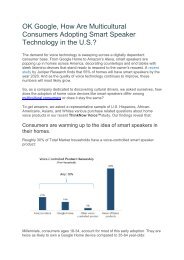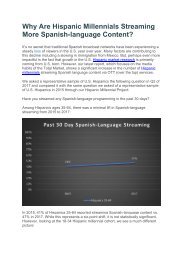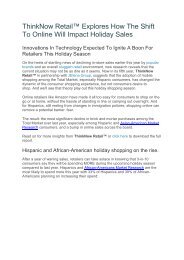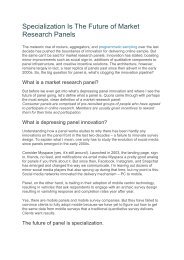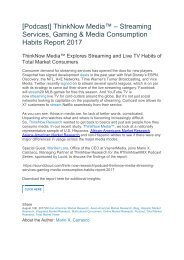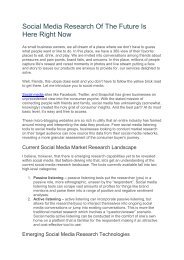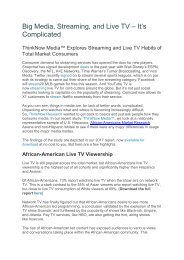Why Do Multicultural Populations Take Online Surveys
As a researcher who has worked in the sample industry for over a decade, I was surprised that I had never asked myself the question, “why do people take online surveys?” It’s a practice that we just kind of take for granted in our industry. Researchers often assume that the primary driver is incentives, as every panel gives some sort of incentive to panelists to encourage participation. But because the incentives are small, there must be a more fundamental reason people take the time to check a few boxes.
As a researcher who has worked in the sample industry for over a decade, I was surprised that I had never asked myself the question, “why do people take online surveys?” It’s a practice that we just kind of take for granted in our industry. Researchers often assume that the primary driver is incentives, as every panel gives some sort of incentive to panelists to encourage participation. But because the incentives are small, there must be a more fundamental reason people take the time to check a few boxes.
Create successful ePaper yourself
Turn your PDF publications into a flip-book with our unique Google optimized e-Paper software.
As U.S. demographics become more multicultural consumers, the need for brands to<br />
understand perhaps one of the most diverse consumer populations in U.S. history<br />
will grow. This creates a tremendous opportunity for research and insights providers.<br />
We’ve seen that play out as the demand for Hispanic, African-American, and Asian<br />
sample has steadily grown for the past decade. Yet, few companies have taken up<br />
the challenge of impaneling these groups in a meaningful way.<br />
So, use this study to make an argument for your multicultural panel’s growing needs.<br />
Keep these three insights in mind if you plan to up your panel game in 2018.<br />
1. Incentives are important (for everyone) – don’t underestimate the power of<br />
incentives, however small they may be. Survey respondents are not looking to<br />
get rich, but incentives do provide some validation for respondents that their<br />
time is valuable. As I mentioned earlier, incentives are particularly of interest<br />
to Asians. If you’re doing a study and you’re struggling with Asian quotas,<br />
incentives are a particularly powerful instrument to stimulate engagement with<br />
this demographic.<br />
2. Make your surveys enjoyable – Hispanics and Whites, the two largest<br />
demographic groups in the U.S., both enjoy taking surveys. So, make sure the<br />
survey experience enjoyable. Often, we don’t have much say in the surveys<br />
we deploy. But if you come across a particularly user-unfriendly survey, don’t<br />
be afraid to push back to your clients and suggest they go that route. Spell out<br />
the benefits to both the clients and the survey respondents. It can save you<br />
sample headaches down the line.<br />
3. Let your panelists know that they are making a difference – While the<br />
surveys we deploy may revolve around topics we deem to be insignificant,<br />
respondents feel like they are making a difference, and they are! Consumers<br />
research products they buy and use every day. As respondents represent a<br />
sample of the general consumer base, their input helps fellow consumers<br />
understand product value and make more informed decisions, which is<br />
gratifying. African-Americans, in particular, are particularly aware of their<br />
influence in shaping marketing and products around them. So, consider<br />
sending a simple newsletter to panelists keeping them updated on product<br />
developments that arose from their responses. That “team” approach could go<br />
a long way in respondent retention and sample quality.<br />
Share5<br />
November 7th, 2017|Blog, Integrated Market Research, <strong>Multicultural</strong> Consumers, <strong>Online</strong> Market<br />
Research, <strong>Online</strong> Market Research Sample, <strong>Online</strong> Panels, Total Market Research<br />
About the Author: Mario X. Carrasco<br />
Mario X. Carrasco is Co-Founder and Principal of ThinkNow Research, an awardwinning<br />
culturally-integrated market research agency based in Burbank, CA. The<br />
agency integrates Hispanic, African-American, and Asian insights into custom<br />
market research for companies and government agencies looking to thrive in a<br />
changing demographic environment.Under his co-leadership, ThinkNow Research<br />
has successfully launched several innovative market research initiatives, such as




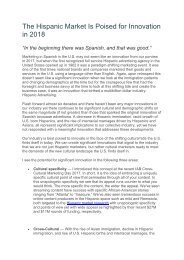
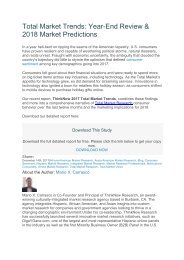
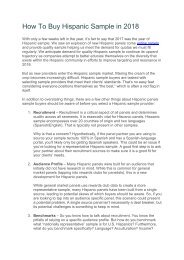
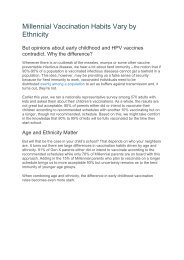
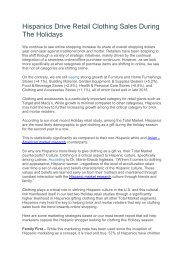
![[Podcast] ThinkNow Voice™ Total Market Smart Speaker Purchase Habits](https://img.yumpu.com/59553142/1/184x260/podcast-thinknow-voicetm-total-market-smart-speaker-purchase-habits.jpg?quality=85)
